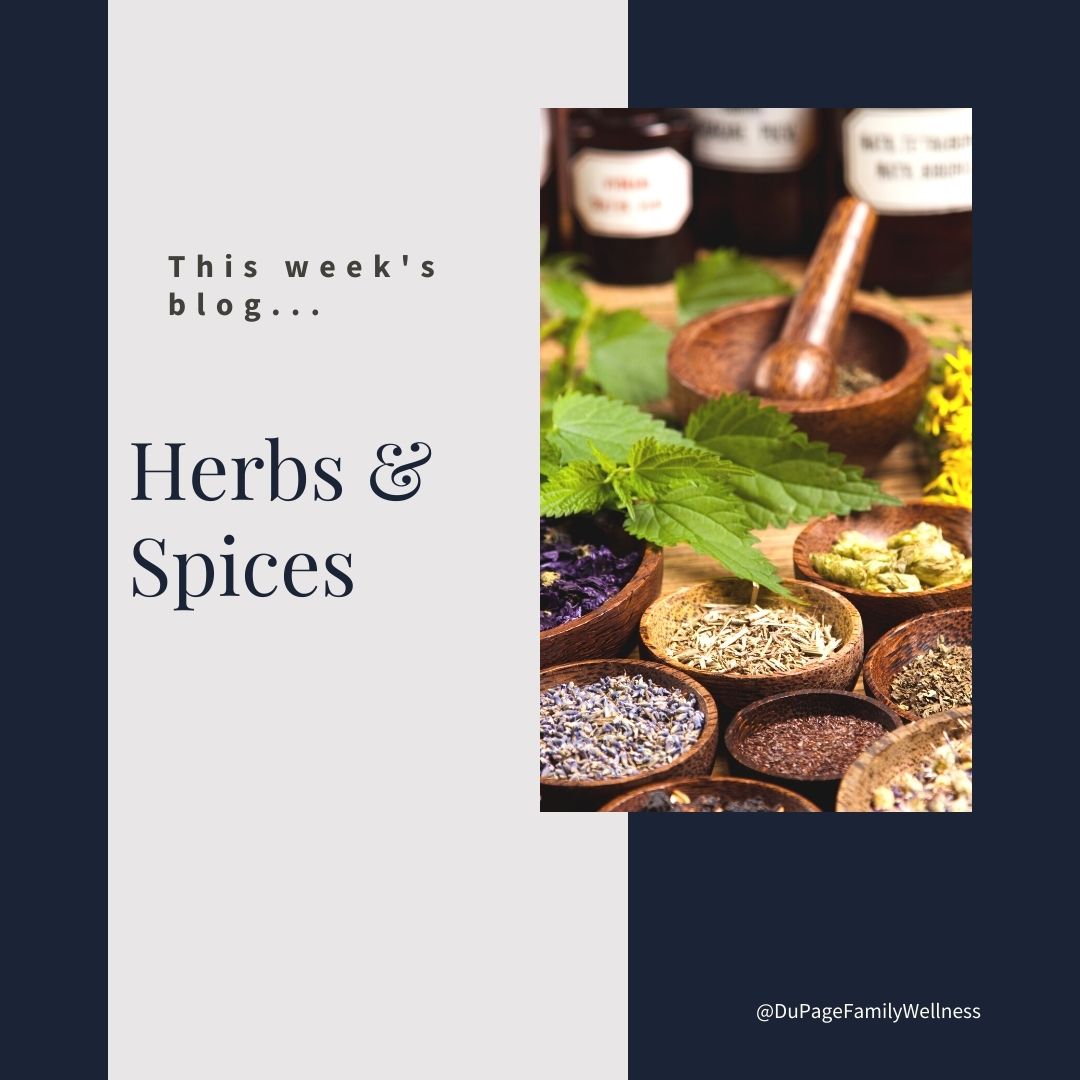 Are you someone who loves natural healing over pharmaceuticals? There are so many options when it comes to natural health. One effective method of healing is through spices and herbs. They have been believed to preserve health for thousands of years!
Are you someone who loves natural healing over pharmaceuticals? There are so many options when it comes to natural health. One effective method of healing is through spices and herbs. They have been believed to preserve health for thousands of years!
Egypt started having schools for herbalists in 300 B.C. According to The Book of Spices, around 2600 to 2100 BC “onions and garlic were fed to the one hundred thousand laborers who toiled in the construction of the Great Pyramid of Cheops, as medicinal herbs to preserve their health.”
Recent studies have supported what the Egyptians long knew. There are many health benefits of herbs and spices. But with so many options it’s hard to know which ones will work for you.
Let's explore herbs and spices to see which ones could help you on your journey to health!
Healing Properties of Specific Spices
There are a variety of herbs and spices, each with their own special healing properties. If you know which ones apply to your particular situations, they can be very effective.
- Cinnamon is a delicious spice that has many health benefits. In a study comparing 26 spices, it was found to have the highest level of antioxidants. It has many anti-inflammatory properties and is known to help with blood sugar regulation. It may help individuals with Alzheimer's, Parkinson's, HIV, and cancer.
- Sage is another spice with anti-inflammatory properties. It’s been shown to decrease cholesterol and blood sugar in diabetic patients. It may improve memory in both Alzheimer's patients and younger individuals. It was found to decrease the frequency and intensity of hot flashes in menopausal women.
- Peppermint is often effective in reducing pain from headaches, nausea, colic, allergies, as well as muscle and joint pain. It’s been found to have antimicrobial, antiviral, and antioxidant properties. A study published in the Avicenna Journal of Phytomedicine found that it even increased sports performance. It has also been found to decrease IBS.
- Turmeric/Curcumin is well known for its anti-inflammatory properties. It is also effective in reducing symptoms of depression, helping the body in detoxification, combating obesity, and alleviating symptoms of Inflammatory Bowel Disease. It may help treat or prevent some cancers, slow or prevent blood clots, as well as assist in regulating blood sugar. The benefits of this spice are almost too many to list. It may be beneficial to combine this spice with black pepper to help the body absorb it.
- Ginger is very effective for many digestive issues. Double-blind studies have found it an effective treatment for motion sickness, as well as nausea and vomiting in pregnancy. Studies have shown it is effective in reducing the pain and/or swelling in arthritis patients. It may be helpful in boosting the immune system and fighting cancer.
- Garlic is a natural antibiotic that does not interfere with the good bacteria in the gut. It has incredible immune boosting properties and is extremely effective in controlling blood pressure. It is good for your liver, eyes, and bones. It may prevent eczema, blood clots, and neuro-degenerative diseases.
- Oregano is loaded with antioxidants. It has antibacterial, antifungal, and anti-inflammatory properties. It may help fight upper respiratory infections, as well as certain types of cancer.
Ways to Use Herbs & Spice
- Food - add fresh herbs and spices to soups, salads, casseroles, and other dishes. (You can even make a salad with herbs as a base rather than lettuce.)
- Tea - hot or cold, herbal tea has many health benefits. (Check out this article for information on how to make a great cup of herbal tea.)
- Tinctures - concentrated herbal tinctures can be extremely powerful but must be made and used properly.
- Capsules - dried crushed herbs are easy to take in capsule form, but it’s important to have a trusted source to assure the quality.
- Ointments - herbs can be made into a smooth cream to put on your skin topically.
- Essential Oils - these highly concentrated liquids, extracted from a variety of herbs. They can be very powerful if acquired from a trusted source and used correctly.
Tips On Using Herbs & Spices in Your Kitchen
- Fresh herbs have more nutritional value than dried ones.
- The fresher they are the better, as they lose nutrients the longer they sit.
- To keep them fresh, buy smaller quantities so that they are replaced more often.
- Consider growing some herbs in your garden or even in your kitchen. (Check out this article for fun ideas on indoor herb gardens.)
- It is important to take care of your spices. They can lose their beneficial properties as they age because they are heat, air, and light sensitive.
- Keep your spices dry. Moisture can contaminate them, increasing the risk of problems with fungus or bacteria.
- Store spices in airtight containers, out of direct sunlight.
- It is important to understand when to add herbs and spices to a recipe as this can impact the overall flavor of the dish. (For more information on when to add them to a dish, check out this article.)
Whether you are ready to start your own herb garden or just make yourself a cup of herbal tea, I hope you enjoy a variety of herbal treats this summer! And when you are in my office next, check out my tower garden/ It should be up and running soon, so you can take some greens home with you.
Dr. Jamie

